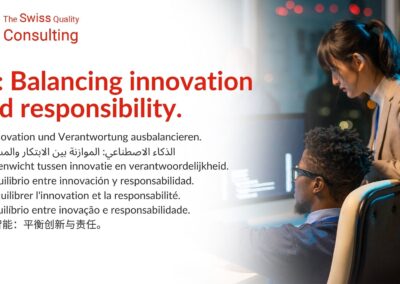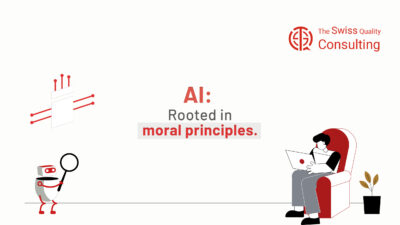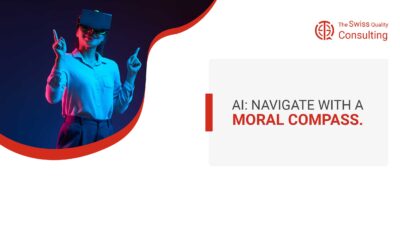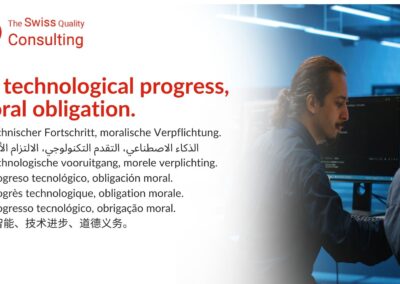Understanding Ethical Leadership in the Modern World
Recognizing the Importance of Ethical Decision-Making
In today’s business landscape, business ethics plays a crucial role in shaping corporate policies and practices. Ethical decision-making ensures that organizations adhere to high moral standards, fostering trust among stakeholders and reinforcing the organization’s reputation. Leaders are often faced with challenging decisions that require careful consideration of both ethical implications and business interests. The significance of maintaining ethical practices cannot be overstated, as it serves as the foundation for building strong and sustainable businesses.
Integrating Core Values into Organizational Culture
An effective ethical framework begins with integrating core values into the very fabric of an organization’s culture. Companies should clearly communicate these values, ensuring that every employee understands their significance and impact on daily operations. This involves crafting comprehensive codes of conduct and providing ongoing training to emphasize the importance of ethical behavior. When ethical values are ingrained in the corporate culture, decision-making becomes aligned with both the organization’s goals and its moral compass, fostering a cohesive and value-driven environment.
Leading by Example: The Role of Ethical Leadership
The influence of ethical leadership cannot be underestimated. Leaders set the tone for the organization, and their behavior often serves as a blueprint for others to follow. Ethical leaders prioritize transparency, accountability, and integrity, establishing a standard that permeates the entire organization. By consistently demonstrating ethical behavior, they inspire others to act in the organization’s best interest, reinforcing a culture that values ethical decision-making and moral responsibility.
Ethical Challenges in Decision-Making
Navigating the complexities of ethical decision-making in business requires leaders to balance the demands of profitability and corporate social responsibility. Often, ethical dilemmas arise that put these priorities at odds, making it challenging to find solutions that satisfy all stakeholders. Leaders must approach these situations with a strong sense of ethical judgment, relying on their core values to guide them in making choices that align with the organization’s ethical framework while still achieving business objectives.
The Impact of Ethics on Stakeholder Trust
Stakeholders, including customers, employees, and investors, closely scrutinize the ethical practices of businesses. Companies that consistently uphold high ethical standards build trust and loyalty among their stakeholders. This trust translates into tangible business benefits, such as customer retention, improved employee morale, and stronger investor confidence. By prioritizing ethical practices, organizations not only safeguard their reputation but also establish a competitive advantage in the marketplace.
The Future of Business Ethics
As societal expectations evolve, so too must businesses’ approaches to ethical decision-making. Emerging challenges such as data privacy, sustainability, and social justice continue to redefine the standards for ethical business conduct. Companies must remain agile, adapting their ethical frameworks to reflect these changing norms while still staying true to their core values. By doing so, they will be better positioned to navigate the ethical challenges of the future and lead with integrity in an increasingly complex world.
The Influence of Technology on Business Ethics
As technology advances, its impact on business ethics becomes increasingly apparent. The rise of artificial intelligence, big data, and automation has introduced new ethical considerations. For instance, data privacy has become a major concern as companies collect and analyze massive amounts of personal information. Ethical leaders must ensure that technology is used responsibly, safeguarding customer data and preventing misuse. Additionally, the rise of automation presents challenges related to employment and workforce displacement. Ethical considerations must guide the integration of technology in a way that balances efficiency with social responsibility.
Globalization and Ethical Business Practices
Globalization has expanded the reach of businesses, presenting opportunities and challenges in equal measure. Operating in multiple regions brings exposure to diverse cultural norms and ethical standards, requiring companies to navigate varying expectations. Businesses must adopt a unified ethical framework that accommodates local customs while adhering to universal principles of fairness and integrity. Ethical challenges can arise in areas such as labor practices, environmental sustainability, and corruption. Global businesses need robust systems to monitor and enforce ethical conduct across all operations, ensuring that their actions align with their stated values.
Corporate Social Responsibility and Ethical Business
Corporate Social Responsibility (CSR) plays a significant role in modern business ethics. It involves companies taking proactive steps to address social and environmental issues beyond their immediate financial interests. Ethical businesses integrate CSR into their strategies, ensuring that they contribute positively to society while maintaining profitability. This can include initiatives aimed at reducing carbon footprints, promoting fair trade practices, and supporting local communities. Ethical leaders understand that CSR is not just about compliance but about creating long-term value for both the business and society at large.
The Personal Responsibility of Leaders
While businesses develop frameworks and policies to guide ethical conduct, much of the responsibility lies with individual leaders. Their decisions, actions, and attitudes shape the ethical tone of the organization. Leaders must remain vigilant in upholding ethical standards, even when faced with difficult choices that may challenge their personal integrity. By fostering a culture of transparency and accountability, leaders can empower employees to act ethically and report unethical behavior without fear of retribution. In this way, ethical leadership creates a ripple effect, influencing behavior throughout the entire organization.
#BusinessEthics, #EthicalLeadership, #CorporateCulture, #DecisionMaking, #OrganizationalValues























